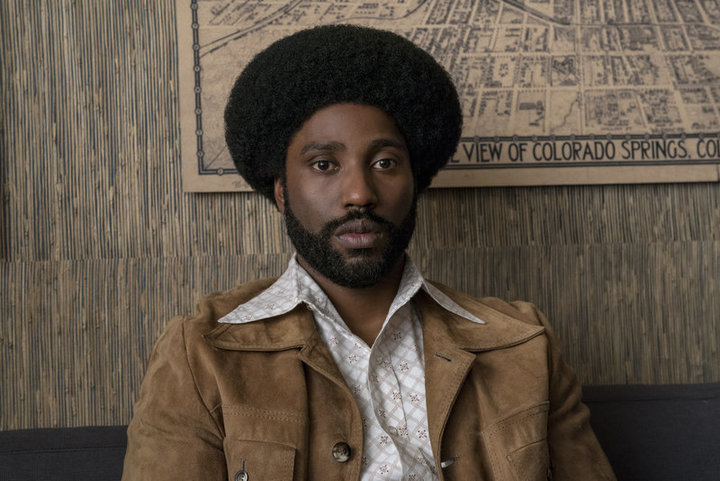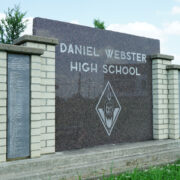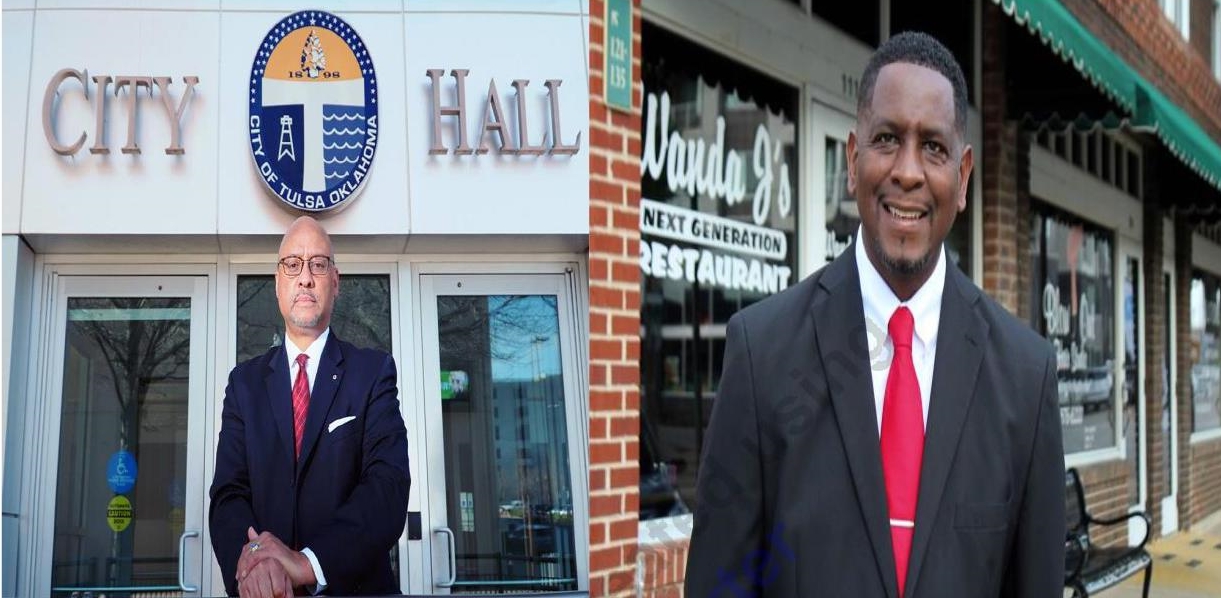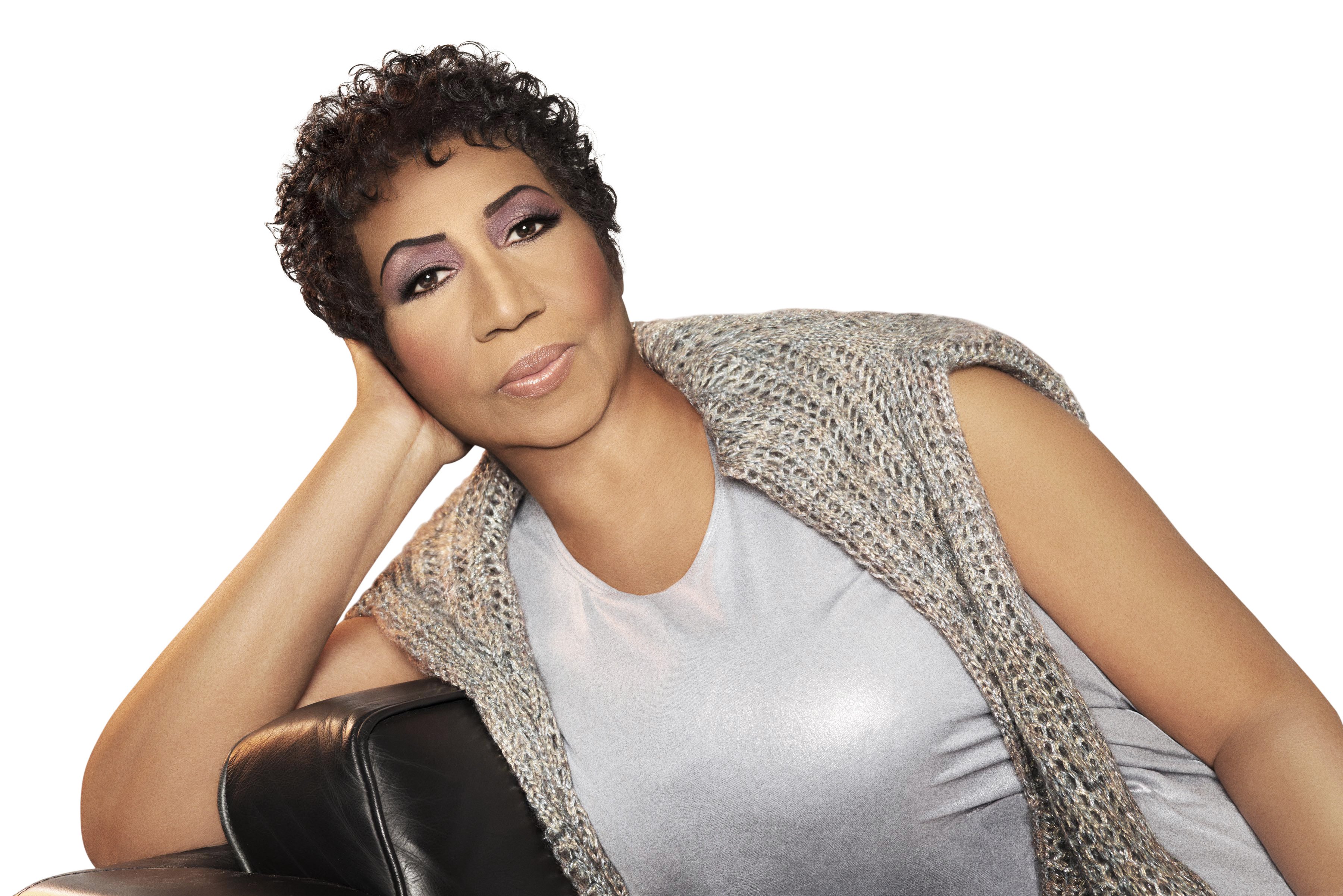
Ron Stallworth wanted Denzel Washington to play him in “BlacKkKlansman” and got pretty close: Washington’s son.
When a Hollywood production company asked Ron Stallworth who should play him in a movie about his life, he did not hesitate: Denzel Washington, he said, would be his ideal analog.
Stallworth is the now-retired African-American police officer who infiltrated a Colorado branch of the Ku Klux Klan during a 1979 sting operation and whose thrilling true story is the basis for “BlacKkKlansman,” Spike Lee’s new film. But Stallworth was 25 during that enterprise; Washington is 63. How do you find someone age-appropriate who measures up to one of the world’s most decorated actors? You go straight to the bloodline, that’s how.
Lee recruited Denzel Washington’s son John David Washington, best known for the HBO series “Ballers,” to portray Stallworth in one of several projects sure to turn the younger Washington into a movie star this year. (The others are “Monsters and Men,” “The Old Man & the Gun” and “Monster.”)
The experience has been staggering for Stallworth, who first chronicled this episode of his life in the 2014 memoir Black Klansman. Now, at 65, he gets to watch his story become a box-office grand slam and possible Oscar contender. On the day Lee’s movie opened in theaters, Stallworth called me from a Manhattan hot-dog joint to discuss the whirlwind.
What is this ride like for you?
Well, the ride is, at times, overwhelming. I’m just a kid from El Paso, Texas. I have been thrust in this position, and sometimes it’s a little bit overwhelming, very surreal. Almost like an out-of-body experience. But it is very, very fun, at times, to be in this moment.
I bet. Walk me back to the first moment that someone reached out and said, “We’re thinking about turning your book ― and your life story ― into a movie.”
That process encompassed almost three years. QC Entertainment had the script and called me and told me they wanted to make a movie out of it. Naturally, I was tickled, and I told them I wanted to talk to them personally. So I flew to Hollywood on my own dime and met with the QC team. We talked about their vision for the movie, and they asked me who I wanted to play me, and I told them. We kept in touch over the year, but they sent the script over to Jordan Peele. Jordan Peele liked it, liked the book. Jordan Peele contacted Spike, and that’s how it evolved.

What was your first reaction when you learned that Spike Lee, of all people, was going to be the one to tell your story?
That occurred about a year after QC had it. I was told originally that Jordan Peele was going to produce and direct. About a year after that, QC contacted me and said there’s been a change of plans: Jordan was not going to direct but still produce. So I said, “Who’s directing?” And they said Spike Lee, and I broke into the biggest grin that you could imagine.
What is your relationship to Spike Lee’s movies? Have you followed his career?
Like most people, I’m very much familiar with Spike Lee’s career. In my opinion, Spike Lee is a national cultural treasure ― to the black community in particular but to America in general. He should be recognized as such, but he is not. The man is a genius at his craft. How he orchestrated this movie and put it together is a sign of that mastery. I have nothing but the utmost respect for Spike Lee and his work.
What was your first conversation with him like?
Spike speaks in sound bites, for the most part, and when we first met, all he said was, “Who are you?” When I went up to him at the studio, he said, “Who are you?” And I identified myself, and he turned around and walked away. He later acknowledged me further, but that was our initial meeting. He was in the midst of putting the cast read-through together. He had a lot on his mind. I was amused. But as the cast read-through was finalized, Spike showed himself to be very warm and eager. He easily made you laugh. Very inviting with his time, and answered any questions I had. It was a very pleasant experience.

What questions did you have? At any point in the process, did you have parameters for what you wanted a movie version of this episode of your life to look like?
I had no parameters. All I asked for from QC was that they tell my story, keep it true and honest to the best of their ability, recognizing that Hollywood was going to play with it. And for the most part, they did that.
People always wonder who would play them in a movie. What involvement did you have in the casting of John David Washington?
Well, it’s ironic you ask that — or interesting, because my first choice to play me when I was asked that question by QC was Denzel Washington. He’s arguably my favorite actor, and I wanted him to play me, but he’s not my age. I was 25 when these events took place. It’s ironic that it went full circle and landed on his son. His son does a very wonderful job of channeling my 25-year-old essence. I am very proud of John David. He is my movie alter ego.
You really got the top of the barrel, so to speak. How did you find out he was cast?
QC called me one day and basically informed me that they had settled on John David. Interestingly enough, I said Denzel was my first choice. He was too old. Then they asked me who my second choice was, and I said Michael B. Jordan … And for whatever reason, that didn’t work. And then I was told eventually that John David was going to play me. I didn’t know anything about John David. I didn’t know Denzel had a son, first of all. I hadn’t seen “Ballers.” So he was new to me, and I did watch some episodes of “Ballers” and got a kick out of his character, Ricky Jerret. When I found out he would be playing it, I was very happy. I’m even happier now, having seen his work on-screen. I’ve seen the movie four times now, and I’m very pleased by what the young man has done.
Have you managed to meet Denzel Washington as well?
I met Denzel at the Brooklyn red carpet event a little more than a week ago. Denzel and his wife.
What was that like for you?
I was very honored to finally meet him. He was very gracious. He and his wife were very gracious to me and my wife. We had photos taken with them, and it was a very nice experience. He’s very down to earth, approachable. As a person, I like him.

That’s what you want to hear when you meet your heroes. What did you make of the movie the first time you saw it?
I didn’t know what to expect … When I first saw it, there were only six people in the theater. It was a private screening. And I was enthralled by the fact that the words coming out of the mouths on the screen were words that I had written four years earlier. I was enthralled listening to these actors throw my name around throughout the film. That’s something you don’t grow up thinking about. To actually be in that moment, with my wife sitting next to me holding my hand and the two of us looking at each other, smiling, making funny eyes at one another, loving eyes — we were in a moment that we never imagined we would be, and there was a thrill.
When I saw it a second time, I studied it a little bit more. I was watching it more closely from a pure entertainment value. When I watched it a third time, I studied it even further. I appreciated it more. Spike Lee has done a very masterful job making this movie.
When you saw it for the first time, did you know that it was going to end with the Charlottesville, Virginia, footage that links it to what’s going on today?
No, I did not. I didn’t know any of that. I read the Cannes Film Festival reviews. I saw the footage, and I heard about what the ending entails, but I didn’t know that Spike was going to do that.
When I did see it, I thought, “Wow, this is powerful.” Like I said, I’ve seen the movie three or four times now, I believe. And each time, everyone sits in stunned silence for about the last, I don’t know, 10 minutes or so, watching those events unfold. That brings home the stark reality of how serious this threat is and why we can never sleep on it and should be willing to respond to it. Again, to me, it was Spike Lee at his best.

I also want to hear your reaction to another important person who shows up in this movie, and that’s Harry Belafonte. I had no idea he had a cameo before seeing it, and everybody in the theater erupted in applause at the sight of him.
Well, they erupted in the audience when I saw it at the LA premiere too. A well-deserved applause.
Given his contributions to civil rights, what did it mean to you to see him in your movie?
I knew Harry was involved in the movie from the beginning, because QC told me, and I was asked not to say anything about it because they wanted to keep his involvement out of the media. He did a wonderful job in his brief appearance. I thought that was one of the most powerful scenes in the movie. And the very fact that he is a direct link to Dr. [Martin Luther] King and experienced a lot of the stuff Dr. King was experiencing — I feel more honored that the story is being told and he has a presence in it.
Have you gotten to spend any time with him?
No, my only personal involvement with Mr. Belafonte was at the Brooklyn premiere. I got to meet him and express to him my appreciation for everything he has done over his life and career. And I was honored by Spike on that occasion when they introduced the cast. Spike gave me the honor of escorting Mr. Belafonte out onto the stage. It’s one of the most memorable events that I’ve ever participated in. I’m grateful to Spike for that moment.
That’s amazing. Spike Lee also has a connection to Barack Obama. They’ve been friends and mutual admirers for years. Since Obama is a fan of Lee’s movies, I’m curious what it would mean to you to think of him seeing this film.
I would be very honored to meet President Obama. In fact, I told Spike the other night, “Spike, when am I going to meet Obama?” He said, “He knows you.” I have an interesting history. When I was in the fourth grade, I got to see President [John] Kennedy when he made a trip to El Paso to dedicate a bridge connecting Ciudad Juárez, Mexico, to the United States.
That’s incredible.
I was about 10 years old, maybe 11, when I got a glimpse of him. This was several weeks before he got assassinated. If you fast-forward [to] when I was a detective in the intelligence division in Colorado Springs, I got the privilege of serving on the security detail of President [Gerald] Ford when he came into town for a visit. It would be a very big honor if I could continue that link if I had the opportunity to meet Obama, the first black president.
Do you have a favorite moment in the movie? Something that means the most to you in terms of your life story?
Nothing in particular I will say is my favorite. I did like the dance sequence in the club. It brought me back to my disco-daddy days.
Your disco-daddy days, I like that. Do you miss those days?
To a certain extent, I miss them. It was a fun time for me. I was actively working undercover. I did have an afro, not quite as big as John David’s, but I did have an afro. I wore a cocaine spoon around my neck, and I wore a suit like he had on, a leisure suit.
I love it. Getting to see yourself on the big screen in this particular fashion is such a unique experience, especially when the movie is so good. I’m grateful for your time today, Ron.
Thank you, and be sure to mention in your story that my book is now a New York Times best-seller.










